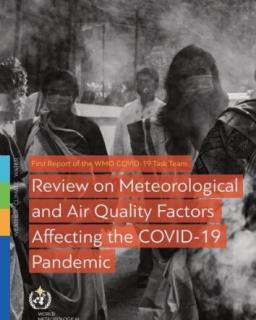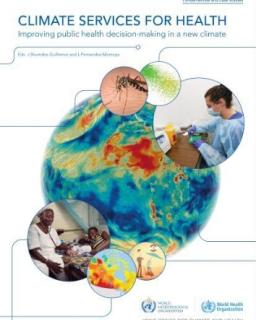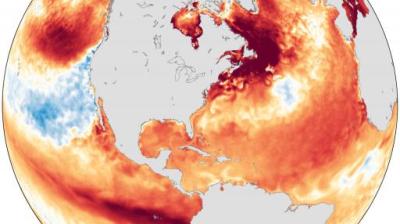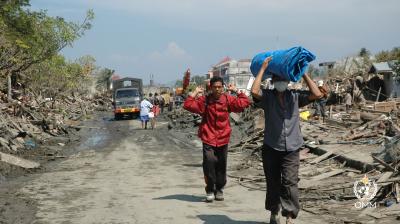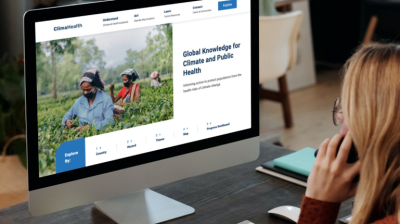
Health
Climate and health are interconnected. Climate change, variability and extreme weather events have severe and complex impacts on our health and well-being.
Overview
From poor air quality to extreme weather events and conditions that favour the spread of infectious diseases, changes to the climate and environment can seriously affect people’s mental and physical health.
Climate information and services are fundamental for building the adaptive capacity and resilience in the health sector.
Climate services for health are defined as “the entire iterative process of joint collaboration between relevant multidisciplinary partners to identify, generate and build capacity to access, develop, deliver, and use relevant and reliable climate knowledge to enhance health decisions.”
These services take many forms, but all have the common goal to produce integrated and actionable climate information, stemming from a well-grounded holistic perspective of past, present, or future states of climate-related risks to society.
The health sector currently underutilizes available climate, weather and environmental science and services for effective decision making. There is immense untapped potential to apply climate services in the health sector.
Impact
Human health risks, especially for people with underlying vulnerabilities and adverse medical conditions, might be exacerbated due to the exposure to extreme weather events, heat stress, inadequate air quality, infectious diseases, as well as other climatic and environmental hazards.
Health risks and impacts from climate change, extreme weather, and environmental conditions are often complex, simultaneous, compounding, cascading, multi-temporal and involve dynamic impacts driven by human behaviour.
Extreme weather events can seriously affect people’s mental and physical health, both in the short- and long-term. Access to health care, food, clean water and physical safety might be compromised due to existing vulnerabilities and adverse health outcomes such as illness, injury or death.
However, even small or gradual changes in weather and climatic conditions – such as local temperature, humidity, or wind direction – can result in significant shifts in people’s exposure to adverse conditions, from disease transmission to changing water quality.
Climate change is also placing increasing pressure on health systems and threatens to reverse decades of progress towards better human health, particularly for vulnerable communities.
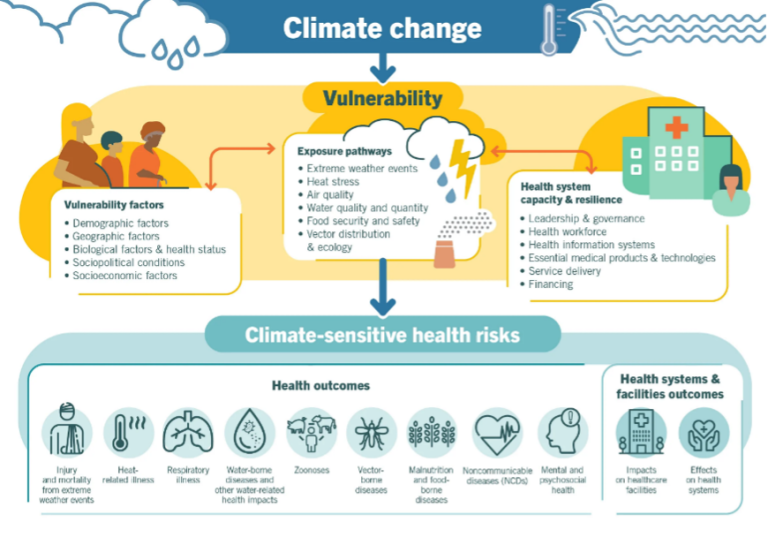
WMO's response
The World Health Organization (WHO) and WMO are working closely together to accelerate the co-production and use of integrated climate and health sciences and services to better protect human health from climate change, extreme weather, and other environmental hazards.
Through the Joint Office for Climate and Health, WHO and WMO are strengthening, harmonizing and leveraging resources and opportunities to empower and support Member States and partners.
A new 10-year Implementation Plan for Advancing Integrated Climate, Environment, and Health Science and Services outlines strategic activities and mechanisms that can drive transformational change in institutional development and multisectoral integration.
The joint leadership and implementation of the proposed mechanisms and actions by both the WMO and WHO as well as other partners are critical to achieving “better health and wellbeing for people facing existing and emerging extreme weather events, climate change, and environmental risks through the effective integration of climate, environment, and health science and services across the world.”
Related activities
Related publications


